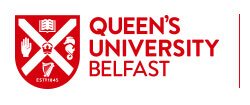Husayn Hosoda
MA Student at George Washington University, Violence,Terrorism and Security
13/05/2020
My isolated experience thus far has given me a very inward focus on politics. Partially because my dissertation basis and degree program are inherently political, but also because of my emotional and personal desire to understand other people.
To be more in touch with the world, I have exposed myself to communities that I largely disagree with on civic duty, the role of government, collectivism, and what we consider to be fundamentally unnatural. These are all issues that have been latched onto while reconciling our current situation.
I’m really reaching here, but I think I can connect this to my dissertation using some philosophical acrobatics. For background, my thesis is focused on warlordism, and the role of ideological institutions in building military power. This has nothing to do with COVID-19 or what our daily challenges entail but I’m studying political science so let me have this.
However, in many ways, going through a pandemic has made me think more harmoniously with warlord ideology. Do I prioritize survival or the common good? What is the line that separates these two?
Life is predicated on unpredictability; we’ve known this since we were children. My primary deliberation now is how this present situation will affect us going forward. I feel that as a person who grew up with a comfortable life in a western country, this time is my ultimate confrontation with reality. The reality of death, contention, strife, and isolation.
I think that this whole experience has made me more cognizant of the subjects of my studies. In a paradoxically sociopathic and empathetic way, I better understand what it means to be a warlord. To watch the world collapsing around you, and to appear unwavering. To engorge yourself with as many human comforts possible, and sleep through the inevitable suffering of others.
Okay, full circle now, the point of my rum-fueled quasi-academic ramblings: I’m curious as to how this period of time will shape our future political ideology. Charles Tilly theorised that the development of our modern state system was artificially built through war, strife, and an intrinsic desire for domination, and now I wonder how we as a society will emerge from a day when the state very profoundly balances the scales of life and death. How will our society address an engrained polarization between inherent trust and obligatory defiance of what our leaders tell us to do? I know a lot of the latter is most vocally in America, trust me we’re not proud of it.
Thinking like a warlord, I am confronted with a societal afront that is nearly impossible to capitalize on. Any effort to gain power must be inadvertently humanitarian and done to alleviate harm. Perhaps we need a crisis to make those in power aware of what power entails. Some will argue that government impositions have made us “fascistic” to curb the liberties of individuals, others will say that stricter governments save more lives.
In any case, I am excited for the political dialogue to follow. I do not know how we will reconcile endemic socioeconomic issues with our confrontation with partial extinction, but I believe that this crisis will produce incredible ideologs; many of them selfish and narcissistic. People my age will later campaign for political office hailing their pandemic ideals and what they accomplished during “the Dark Time” of 2020.
There is a warlord in every person. My peers will scheme and conquer, some to support the state and others to bring it down. As a liberal arts major, I’m content to watch.
Death is our new currency. In the back of our minds there is voice that says, “I would kill to be free,” because freedom makes us powerful and dying is an inevitability. How do we teach ourselves about the common good, when goodness is a more nebulous concept than we have seen in out mortal lives?
These questions can’t be answered with science, political or otherwise, and none of us are qualified to give solutions. We will survive, in theory, perhaps in practice, because it is our nature rather than our duty to protect our fellow human beings. That is the warlord narrative that I would like to accept. A world without evil or vice would be fundamentally inhuman, and this crisis has provided me one of the most genuine human experiences that one could wish for.
